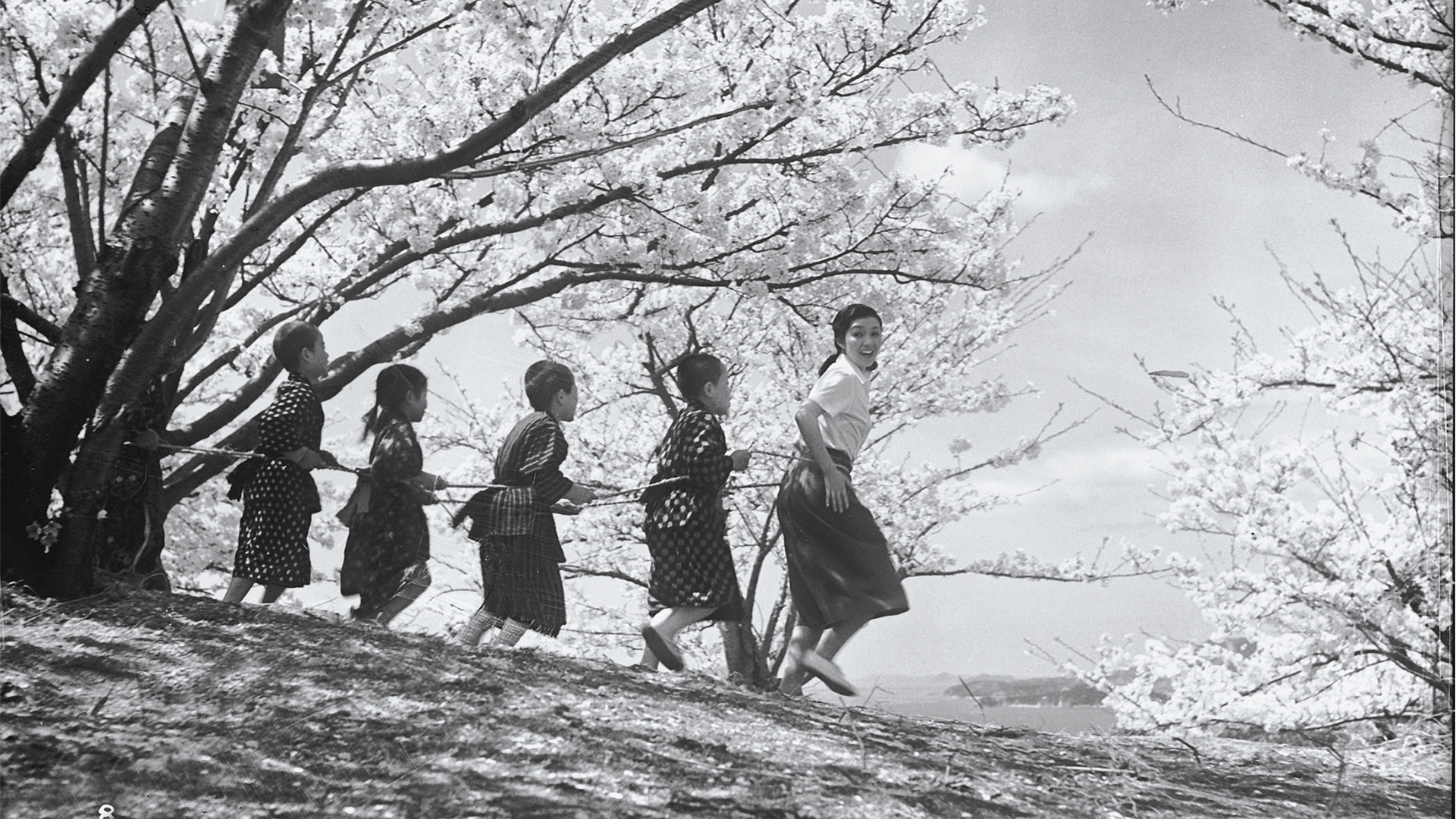
Keisuke KINOSHITA 木下恵介
Twenty-Four Eyes
Nippon Retro ²
In 1928, Hisako, a young teacher, is appointed to work at an elementary school on a remote island. Years later, as the effects of the Pacific War begin to be felt in Japan, the lives of the people on the idyllic island are thrown into turmoil. Director Keisuke KINOSHITA masterfully depicts the fate of the teacher and her students as they struggle with the consequences of war and propaganda.
Guests:
Daniel OTTO
Sat., June 10, 2023, 15:00
Kino des DFF
With an introduction by Daniel OTTO
35mm, Original with English subtitles
NOT approved for persons under 18 years
Cityscapes & Countryside Drama Historical
二十四の瞳
Nijushi no hitomi
Japan 1954
155 minutes
Director
Keisuke KINOSHITA
Script
Keisuke KINOSHITA based on a novel by Sakae TSUBOI
Cinematography
Hiroshi KUSUDA
Music
Chuji KINOSHITA
World sales
Shochiku
Film print
Japan Foundation
Cast
Hideko TAKAMINE, Yumeji TSUKIOKA, Kuniko IGAWA, Takahiro TAMURA, Chishu RYU
About Keisuke KINOSHITA
木下恵介
Keisuke KINOSHITA (1912–1998) is considered one of the most important Japanese directors. Starting in 1943, he made popular dramas, comedies, romances, ghost stories and noir films for Studio Shochiku, finding strong images even within conventions. After ARMY (1944), he was not allowed to work until the end of World War II. From 1945 on, the tension between the past and the hope for a new beginning was his central theme. The suffering, responsibility, and moral challenge of the individual are at the heart of many of his dramas. KINOSHITA’s rejection of feudal, militaristic Japan is clearly visible. With CARMEN COMES HOME (1951), he brought the first Japanese color film to the cinema, a summer comedy with serious overtones. KINOSHITA, who also repeatedly addressed the contrast between country and city, is considered the central humanist of post-war Japanese cinema. His sensitively-portrayed characters and their fates continue to touch audiences today.
In cooperation with Japan Foundation Tokyo and Japanisches Kulturinstitut (The Japan Foundation)


